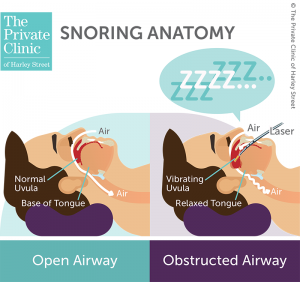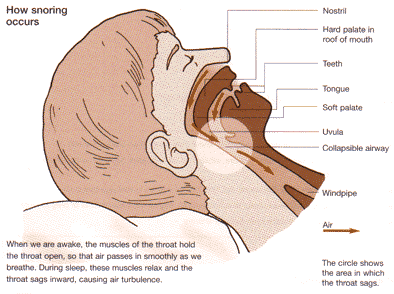Snoring, an issue for many both men and women.
SNORING & BLOCKED NOSE
Males are not the only ones struggling with snoring conditions, a recent study by the Royal National Throat, Nose and Ear Hospital revealed that almost a 30% of the population of young women within the ages of 25-34 suffer from it too.
There has been recently a rise in women suffering from snoring issue, in fact a study cites that young women have been found to be more irritating snorers compared to their male counterparts.
This is why women are more than ever are becoming more aware of the snoring treatments available and are seeking long-term results.
Snoring is considered a form of sleep apnoea, which causes people to stop breathing for a few seconds or even several minutes within the hour. Snoring not only can disrupt your night sleep, it can also lead to severe health conditions usually related to signs of mild cognitive impairment (MCI) such as memory loss and can even affect relationships.
So what are the reasons why people snore?
Even though everyone’s reasons are different, the most common ones are:
– Sleeping on your back could be one of the main reasons causing snoring issues, this sleeping posture induces the tongue to roll over blocking the airway.
– Having a blocked nose or suffering from a deviated septum can also contribute to snoring as the air doesn’t flow correctly through the airway.
– Being overweight. As obesity rates are continuously raising there has been a link among overweight patients and snoring issues.
However, we must be careful as generalisations cannot be made as there are many different potential causes and effects to this issue.

How to tackle the condition?
There are many snoring treatments available out there, including over-the-counter-snoring cures many with disappointing results.
The truth is that there is no specific “cure” for snoring. Snoring is essentially generated by the lack of air which travels through the air paths so there are different ways to treat it.
The areas that create the noise are the tongue, nose and throat.
There are three types of snoring treatments available that tackle the different areas:
– The LAUP stands for Laser Assisted Uvulopalatoplasty, this procedure targets the noise generated from the nose and throat. The procedure reduces the tissue in the throat as well as the size of the uvula, meaning the chance of blocking the airway whilst sleeping is minimised. The procedure involves the reducing or treating the uvula on the back of the throat which enables the air to go pass that airway freely. This technique is ideal for patients who suffer from enlarged uvulas
– Bipolar Radiofrequency Thermotherapy (RFITT) – This fast and efficient treatment utilises radio frequency in order to tighten the muscle present on the soft palate reducing its vibration while sleeping. The procedure entails targeting the back of the throat with a slim pen which emits a high frequency, all under local anaesthetic. The best results are usually more prominent around 6 months post treatment. Eve
– Laser Assisted partial turbinectomy the procedure involves the use of a CO2 laser to create an improved air path on the nose. This technique is used in patients who suffer from enlarged nasal turbinate’s.
The combination of the LAUP and Laser Assisted partial turbinectomy treatments can tackle the louder and more disruptive snoring noises.
The Private Clinic Snoring Treatments.
At The Private Clinic for over 30 years we have been assisting many people who deal with snoring and sleeping issues.
The Private Clinic offers the latest treatments to treat snoring issues, including non-invasive laser and radio frequency treatments and counts with specialised surgeons such as Professor Yves Kamami, the inventor of the LAUP (Laser Assisted Uvula Palatoplasty) procedure. The treatment has achieved great results with over 4000 cases.
‘I am very pleased with the results. My snoring has been reduced by 90% and my partner is very pleased…! *
For more information about our snoring treatments, please see our website. To book a snoring treatment consultation with our expert please request a consultation on our website or you can call us on 0333 920 2471.





